举例归纳8种类型社交游戏特点
作者:Tadhg
本文主要通过举例描述8种类型的社交游戏特点(主要是Facebook游戏),希望能够由此增进诸位对社交游戏的概念及其广受欢迎原因的认识。
社交游戏是一个侧重于沟通和社交的领域,我们最近发现社交游戏中的社交性仍然有待提高,但也不可强加于其上。希望下文内容的解释对各位有所禆益。
社交角色扮演游戏(Social RPG)
RPG社交游戏从传统的视频RPG游戏中借鉴了不少元素,目前的社交平台也已充斥大量此类游戏。这类游戏常要求玩家通过执行“任务”或开展“工作”以搜集购买道具的钱币,将自己购得的道具分配给组队成员或集体,而且还设置了一个能量限制系统,以避免玩家在短时间内完成了过多任务。
社交游戏开发商Zynga旗下就有一系列模型同出一体的RPG社交游戏,这些游戏虽然画面和logo有所区别,但实际玩法却是大同小异。而其他RPG游戏开发商也同样使用了与此类似的模型,《Mobsters》、《Mafia Wars》、《Mob Wars》和其他基于黑帮题材的内容就是现今最热门的RPG社交游戏。而像《Vampire Wars》、《Street Racing》、《World War》和《Fashion Wars》等这类游戏的表现也同样可圈可点。《龙与地下城:简易冒险》也是一款试图将传统的桌面角色扮演游戏引向Facebook的力作,其他值得一提的游戏还包括《Battle Stations》、《Knighthood》和《Might of Many》。
体育角色扮演游戏(Sports RPG)
体育RPG游戏并非社交网络前50名应用榜单上的常客,但其中一些有趣游戏仍然赢得了可观的用户基础。这类游戏在许多方面与RPG社交游戏颇为相似,但其游戏机制更侧重于竞争元素。体育RPG游戏通常借鉴了《Football Manager》、《Fantasy Football》等游戏的精髓,并在共中添加了邀请好友担任球队成员的功能。《Premier Football》就属于这种典型,它支持玩家管理一个由好友组成的球队。
《Tennis Mania》是一款出众的体育RPG游戏,它使用了许多其他同类游戏的管理机制,并将其融入一款真正的网球游戏,是Facebook上最有趣的体育RPG游戏之一。
休闲游戏(casual games)
英国社交游戏开发商Playfish一直是休闲社交游戏中的强手,与其他社交游戏公司的不同之处在于,它更偏重使用Flash开发产品,而且其游戏图面质量和音效也很超群。Playfish的部分游戏是从任天堂DS和Wii平台游戏中获取灵感,例如《Who Has the Biggest Brain?》就明显带有《Brain Training》的风格,而人们也总是能从《Bowling Buddies》、《Geo Challenge》和《Minigolf Party》等作品中看到Wii游戏的影子。
另一种类型就是以MindJolt Ganmes为代表的休闲游戏门户网站,该平台已聚集500多款休闲游戏(多数是简单的小游戏)。由于Facebook限制用户可设置的书签数量,所以这种聚合型游戏应用也颇有人气。其他类似游戏门户网站包括Kongregate,它在Facebook上也开放了服务,但主要目标是将用户重新引向其门户网站的服务,所以在社交网络上并没有广泛的用户基础。
字谜游戏(Word Games)
我们可以将字谜游戏视为休闲游戏下的一个子集,因为这类游戏主要吸引那些对其他休闲游戏不感兴趣的用户。《Scrabulous》应该是人们会首先想到的字谜社交游戏(游戏注:现已在Facebook消声匿迹),但这一领域实际上还有不少游戏前仆后继。
Playfish旗下的《Word Challenge》曾是最受欢迎的字谜游戏,它含有多种游戏模式。玩家在初级阶段需要在有限时间内,根据屏幕上的提示从一系列字母中找到多个单词。该游戏的社交性体现在展示并对比玩家与好友的游戏成就。
另一款值得关注的字谜游戏还包括《Scramble》(Zynga作品)、《Word Twist》(与《Word Challenge》类似)、《PathWords》以及一系列官方版Scrabble游戏(游戏邦注:Scrabble的授权合作情况很复杂,因为不同地区原因而推出了多个版本)。最后就是由《Scrabulous》原创开发者推出的另一款不同游戏《Wordscraper》,它支持玩家体验定制化而非官方版本的Scrabble游戏。
虚拟村庄游戏(Virtual Villages)
有不少社交游戏理念是让玩家在一片特定区域上创造自己的杰作,然后向好友赠送礼物并相互拜访。它们是最热门的社交游戏,主要靠社交互动和创意性招徕用户。这类游戏很容易形成社群,有时候会在游戏中直接体现玩家社群,有时则以俱乐部或联盟形式来展现。
《Lil Green Patch》这款游戏就是其中典型,它为玩家提供了一个可种植多种草木的花园,支持他们相互交换植物,并通过赠送植物保护现实生活中的热带雨林。玩家的任务就是照顾自己的花园,除草浇灌。与之相似的另一款游戏是《myFarm》。
Playfish的《Pet Society》是另一种类型,玩家在游戏中有一只虚拟宠物,他们得照顾这种动物,满足它的需求,给它喂食洗澡穿衣,还要时常抚摸关心它。他们可以将宠物带到小镇上,让它去看望其他动物。这款游戏就是一整个社区,玩家可访问其他好友的宠物家园并与之进行互动。
《Yoville》也同样采用了类似的题材,但它的主角并非宠物而是玩家的虚拟形象,它实际上是一个小镇画面和聊天应用的合体。你可以在其中利用各种玩意儿装饰人物形象和住所,游戏中还设置了不少可搜集的物品和钱币,支持玩家与好友在游戏中见面并交谈。
最古怪的虚拟村庄游戏可能就是《My City》了,这款《模拟城市》风格的游戏支持玩家建设自己的城市,并邀请好友共同完成任务。该游戏的另一个独特之处在于,其视图使用的并非Adobe的Flash技术,而是微软Silverlight。
博彩游戏(Casino)
社交网络与888.com网站的扑克游戏的最大不同点在于,前者的游戏动力是赢取积分,而后者的意图则是赢得真实钞票。人气最旺的此类游戏当属Zynga的《Texas Hold ‘Em》,支持玩家在其中购买或赢取筹码。该游戏体验方式很简便,还设置了一些可用多余筹码购买的虚拟礼品。
这款Zynga游戏是目前Facebook平台上最抢眼的扑克游戏,但Playdom(据称曾是Myspace第一大社交游戏开发商)也在此推出了《Poker Palace》。对扑克没啥兴趣的用户,或者可以体验一下二十一点(Blackjack)的玩法。
轻松搞笑小游戏(Just fo Laughs)
Facebook平台早期的第一批应用就是那些轻松搞笑小游戏,它们实际上是一种笑话或找乐子的内容,邀请用户让好友参与其中体验片刻。这类游戏的人气上升得很快,下落也非常迅速。在最初几个月里,几乎每个Facebook用户都会收到《Vampires vs Werewolves》等游戏中的“你刚才被咬了”之类的大量信息。不少用户对此极为反感,以致Facebook后来不得不出面干预,限制了这类信息的传播。
这类游戏在今天仍然存在,但已不向过去那样因扰人而遭嫌弃了。《KickMania》就是一个很好的范例,它的游戏理念非常简单:玩家可挑选一张好友的照片放到一个傀儡模型的头上,然后向其重击并赢取高分。该好友也会因此收到自己正被痛殴的信息。
《Kipnap》是这类游戏的一种演变形式。它将微量的RPG元素和社交机制相结合,让玩家“诱拐”好友,让他们看看世界不同城市风情。该游戏实际上是旅游频道(Travel Channel)的一个宣传工具,但登台表现极佳,赢得了一批忠实的粉丝。
《Compare People》(以及一系列相似的好友评级游戏)也属于这类游戏,它让用户回答哪位好友最聪明、最有趣、最漂亮等问题。然后该好友就会收到信息,获知自己在该用户眼里的形象,以及与他人的对比情况。其它同类游戏包括《Water Gun Fight》和《Pillow Fight》等。
物权游戏(Ownership Games)
它是指那些让玩家在一个复杂的网络中彼此间建立一种物权关系,一般都会设置礼物系统。物权游戏与轻松搞笑小游戏同根同源,但它更倾向于建立长期的物权关系,以及更有弹性的社区。这些社区就是同步社交网络和游戏的典型。
最为著名的代表就是《好友买卖》,它支持玩家购买好友,款待他们,给他们礼物,让他们做一些搞笑和其他轻松的事情。该游戏还有一个怪招就是让用户通过购买和出售好友获得更多利润。
较为边缘化的一款游戏就是《Human Pets》,与《好友买卖》一样,它的目标是建立玩家对好友的物权关系,并结交更多新朋友,但它的礼物系统更有创意。玩家可上传自己的照片,然后为其贴标签,建设自己的小商铺等门店。这一功能也让该游戏卷入了与Facebook的麻烦,因为它比《好友买卖》更招惹那些成人用户,也因此引起了一些有伤风化的问题(游戏邦注:该游戏后来转移阵地,迁到自己的访问站点)。
物权游戏从一定程度上讲也是一种约会游戏,它们的发展动力来自用户人气,但从本质上看更像是一种与他人见面的社交框架而非真正意义上的游戏,但毫无疑问,它们的存在为社交游戏增添了更丰富的互动方式。
总结
在以上归纳的几种游戏中,有些游戏用户规模庞大,RPG游戏尤其如此,而新款RPG游戏如果不通过强有力的广告营销活动,就很难从中分得一杯羹。Facebook平台上的RPG游戏尚未出现同类相食的局面,但我们认为这一场景迟早会发生。
休闲游戏(包括字谜游戏)已面临难以盈利这一重大问题。虽然很招用户喜欢,但这种游戏就是难以间接盈利。假如开发商免费派送游戏,那么应该向玩家提供哪些促使他们掏钱的内容呢?在这类游戏中设置虚拟资产并无多大意义,而赞助性广告则常与游戏内容格格不入(并且易为用户所忽略),玩家唯一在乎的就是分享高分和其他病毒式传播活动。Playfish通过在休闲游戏中植入传统的升级模式(游戏邦注:例如第一关免费,设置付费版本等)进行创收。这对用户来说是一种难以接受的商业模式,毕竟这一领域还有其他大量免费游戏可供体验。
有一些类型的游戏用户数量较少,例如博彩、体育RPG游戏和物权游戏。但游戏市场是一个后浪推前浪的领域,目前还不宜过早定论这些游戏是否会彻底淡出用户视线,社交游戏领域的低准入门槛很有可能证明这一点。当然,也有些游戏类型已经不复存在。没有人想起这些游戏,或者这类游戏并无彩的作品问世。
上述内容并不包括社交游戏的所有类型,有些游戏可能从属于其他类型,有些游戏定义仍然未明,尽管这种分类并非尽善尽美,但我们还是认为以风格进行归类总胜于没有任何分类,至少这样更容易解释这些游戏的社交之处。
游戏邦注:原文发表于2009年3月20日,所述内容以当时为背景。(本文为游戏邦/gamerboom.com编译,如需转载请联系:游戏邦)
8 Types of Social Game
by Tadhg
This article describes 8 kinds of social game operating today (mostly on Facebook) and provides many examples. We hope it does a better job of explaining what is going on in social games and why we’re so very excited by social games in general.
Social games as an industry is about the conversation. We realised recently that the conversation about social games is still waiting to be had but it can’t be forced. Social games are still very unfamiliar terrain to most, and so this article is all about grounding that conversation so that it can begin.
We hope you find it useful.
Social RPGs
Social RPGs borrow a lot from regular video game RPGs (role playing games). There are quite a few of these kinds of games and they all follow more-or-less the same formula: Players collect money to buy items by performing ‘Jobs’ or ‘Quests’, assign bought items to members of their team or party, and do so in the confines of an energy statistic that prevents the player from doing too much too soon.
Zynga (the most successful social game developer on Facebook according to AppData) has a suite of RPGs which are built from a template they have developed. The games are the same but use different images and logos. Other RPG makers use very similar formulae. Mobsters, Mafia Wars, Mob Wars and other hoodlum-based games are the most popular of the social RPGs. Some others like Vampire Wars, Street Racing, World War and Fashion Wars also do pretty well. Dungeons and Dragons: Tiny Adventures was also an attempt to bring some old-school tabletop role playing to Facebook but has apparently ceased development. Other notables include Battle Stations, Knighthood and Might of Many.
Sports RPG
Sport RPG games do not generally feature in the top 50 applications, but some of them are interesting games with a decent-sized audience. They are very similar to social RPGs in many respects, but the focus tends to be more competition-oriented. Sports RPGs are often reminiscent of Football Manager, Fantasy Football and so forth, with the added feature of using your friends as players in your team. One example of this is Premier Football, a game in which you manage a team of players made up of your friends.
One Sports RPG that stands out is Tennis Mania. Tennis Mania uses many of the same management mechanics of other sports RPGs and mixes them with an actual tennis game. It is, as far as we know, unique in doing so and remains one of the most interesting sports RPG games on Facebook.
Casual games
UK social developer Playfish has made quite a strong play for casual games in social networks. Unlike most other social game developers, Playfish uses Flash heavily and has a very high standard of graphics and sound compared to every other developer. Some of their games have clearly drawn their inspiration from the success stories of the Nintendo DS and Wii, with Who Has the Biggest Brain? clearly belonging to the Brain Training school of thought, and Bowling Buddies, Geo Challenge and Minigolf Party very reminiscent of the sorts of games you’d see on Wii.
Another approach is the casual portal, such as MindJolt Games, which is an application that acts as a portal to over 500 casual games (mostly simple ones). This is a good strategy given Facebook’s inherent limitations on numbers of bookmarks that users can have. Other games portal services such as Kongregate have also created a presence on social networks, although this tends to amount to a redirecting index back to the portal service, which may explain why they haven’t really taken off to any extent.
Word Games
Word games are best viewed as a special subset of casual games because they tend to attract a particular kind of player who often shows no interest in other casual games and vice versa. The first (and in some cases only) social game that most people have ever heard of was Scrabulous (now defunct), but there are several other word games that have arisen in its place.
Playfish’s Word Challenge is the most popular at the moment and also the best. It comprises several game modes. In the basic one you are given a set of letters and must find as many words from those letters in a set period of time, with a visual table on-screen giving you a means to deduce missing words. Being social, the game also shows you your performance against other friends who have played the game.
Other notable word games include Scramble (a Zynga game in which you make words out of letter patterns), Word Twist (similar to Word Challenge, but more of a versus-game) PathWords and a couple of official Scrabble games (Scrabble seems to have complicated licensing arrangements, which have resulted in different versions for different geographical reasons). Lastly, the original inventors of Scrabulous came back with a different game called Wordscraper which allows a customisable kind of Scrabble game rather than the official version.
Virtual Villages
A number of social games operate on the ideas of creating a presence in a defined area, giving gifts to your friends and essentially hanging out. They are among the most popular social games and function purely on their social interaction mixed with a creative mentality. They tend to form communities as a result, whether explicitly represented by the game, or implicitly in the form of a club or association.
First is Lil Green Patch. The idea behind Lil Green Patch (and its sister application Lil Blue Cove) is that the player has a garden in which they plant flowers. They give plants to each other and the application promises that the gifting of plants to others helps save actual rainforest in the real world. Players tend their gardens, de-weeding and looking after them. Another application in the same vein is myFarm.
Pet Society is another. In this game, the player has a Pet. They can take care of it, seeing to its needs, dressing it, petting it etc. They can take their pet out into town and meet other pets, arranged in a kind of village structure. There’s a whole community, the opportunity to visit other players pet homes, and generally interact. Pet Society is a Playfish game and as such is very animated and vivid.
Yoville also follows the little town structure motif, but instead of pets the player has a personal avatar. Yoville is essentially a combination isometric town and chat application. You can kit your character and your apartment with various nice objects, there are specially collectible objects and coins which can be earned or bought, and you can meet many other players in the game and talk to them and otherwise just generally hang out.
Perhaps the most geeky virtual village game is My City. This SimCity style game allows players to create their own functioning city and invite their friends to contribute to it. My City is also unusual as a social game in that it uses Microsoft’s Silverlight as a viewer rather than Adobe’s Flash.
Casino
The main difference between social network Poker and sites such as 888.com is that they are for-points games rather than gambling games played for real money. The most popular social Poker game is Zynga’s Texas Hold ‘Em. It’s a competent if visually unexciting version of the game in which players can buy or earn chips. The game is very good at making it easy for you to jump in and out of a hand as required and also features virtual gifts, which you can buy with your excess game chips if you have any.
Zynga’s game is the most popular of all the games on Facebook at the moment. However Playdom (who claim to be the number one social game developer on Myspace) recently announced that they are making a move into Facebook by taking over the popular Poker Palace game. This will likely see a lot of competition between the two games and Playdom bring with them a sizeable war chest of investment.
For those who have no interest in Poker, there’s always Blackjack.
Just for Laughs
In the early days of Facebook Platform the first applications that really broke out of the gate were just-for-laughs games. These sorts of games are essentially a virtual joke that invites users to get their friends in for a few goes before they move on. Just-for-laughs games tend to rise and fall quickly in popularity. In the first few months every Facebook user was swamped with messages such as “you have just been bitten” by games like Vampires vs Werewolves. Users actually became quite annoyed at the level of noisy traffic that these games generated to the point that Facebook stepped in and clamped down on them.
Today the just for laughs games still exist and thrive but they are not as annoying as they once were. A good example is the game KickMania. The game is simple enough: You choose to place one of your friends’ photos on the head of a dummy model, which you then proceed to kick as hard as you can and score some points. Your friend then receives a message that they have been kicked.
Kidnap is an evolution of the just for laughs game. It uses a combination of light RPG with a social mechanic which involves essentially ‘kidnapping’ your friends and showing them different cities around the world. The game is a promotional vehicle for the Travel Channel and has been very successful to date, building a loyal fan base.
Compare People (and a variety of similar friend rating games) would also count as a just for laughs game. The game invites you to complete questions about which of your friends is smartest, funniest, sexiest and so on. Your friends then get notified that they have been compared and either found strong or wanting. This game and similar ones of its type are really just a social giggle. Other examples are is cool, Water Gun Fight and Pillow Fight.
Ownership Games
An ownership game is one in which players establish ownership over each other in complicated networks, and gift and otherwise generally look after their new-found charges. Ownership games have their origin in the just for laughs style of game but tend to establish longer terms of ownership and build much more resilient communities as a result. These communities are examples of social networking and gaming behaving synonymously.
The most popular and well known of these games is Friends For Sale. Friends for Sale allows you to buy your friends, treat them well, give them gifts, make them do amusing things and other light-hearted activities. There’s an element of gamesmanship in it in that the objective of the game is to profit on the buying and selling of your friends.
Slightly more on the fringe is another game called Human Pets. Like Friends For Sale, the goal is to establish patterns of ownership with your friends and make new friends, but unlike Friends For Sale the gifting system is creative. Players upload their own pictures, add tag lines to them, create their own little shops and so on. This feature got Human Pets into some trouble with Facebook (and prompted an off-platform move to its own dotcom destination site) because the game attracted a much more adult audience than Friends For Sale as a result, beyond the point of risqué and into erotica.
Ownership games are on some level essentially dating games. The compulsion behind them is popularity to an extent, but they’re more about meeting people and creating social structures as a game itself. They are in many ways quite fringe compared to what most people regard as gaming, but their appearance and has made social games undeniably more interesting in many ways.
Conclusion
Some of these categories are heavily over-subscribed, especially the RPG, and it would be difficult to achieve any traction with a new RPG without a serious advertising push. As Facebook itself grows rapidly cannibalisation probably isn’t a major issue for the RPG just yet, but it likely will be.
Highly casual games (including word games) have questions over them as regards their economics. Users love them (Playfish’s games are among the stickiest on Facebook) but they are difficult to monetise indirectly. If you’re giving a casual game away for free, what incentive is there for players to pay? Virtual property in a game like this is meaningless, advertising tends to be irrelevant to the game content (and thus ignored), and the only sort of investment that players have in them are high score sharing and other viral activities, which are socially uninteresting. Playfish are trying to monetise their casual games with a traditional upgrade model (get the first levels free, pay for the pro version). This has always been a difficult business model for users to accept because there are so many other free games available.
Some categories are under-subscribed, such as Casino, Sports RPG and Ownership games. While each has established one or two major proponents, this really does not exclude others from making a go of it. The history of games markets has always been one of newcomers and surprise challengers, so it would be premature to regard any of them as locked up and untouchable. The low barriers to entry of social game especially make this likely. Of course, some categories do not yet exist. Nobody’s thought of them or nobody’s done a good enough job executing on one of them yet to make any impact. We at Simple Lifeforms like to think that our forthcoming game (Spell Souls) is just such a game. Stay tuned.
While it’s an exciting time to be a social game developer, the scene has developed such that the initial rush is now over and now is the time for more focused strategies, better targeted games and a drive to improve quality. Social games have crossed the threshold into a properly-developing sector of the games industry now, and it’s a great time to get into it. This is not a complete list of games or game types. It is, like all such articles, open to questions of whether a particular games really belongs in one category or another, whether categories run the risk of shoe-horning content and whether it is a good idea to categorise games in genres in the first place. However it is useful to be able to explain social games in an imperfect context than no context at all. That’s how the conversation starts.(source:simplelifeforms) http://blog.simplelifeforms.com/2009/03/20/8-types-of-social-game/


























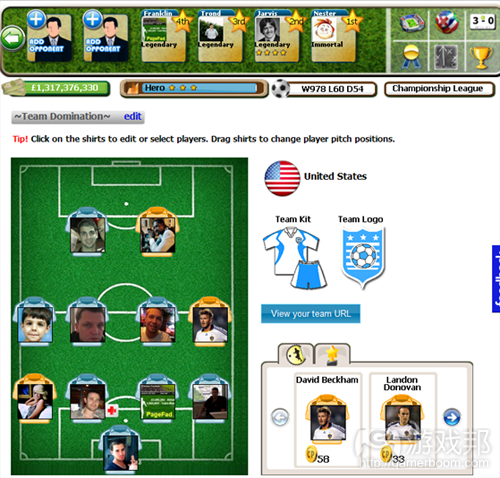
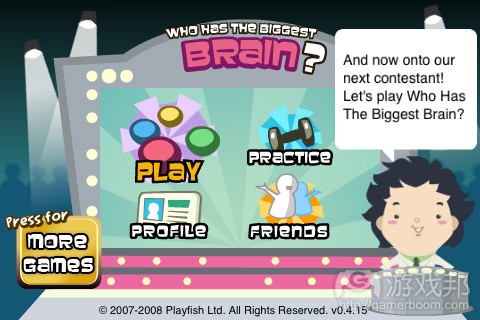

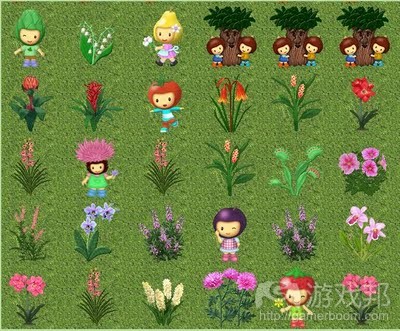
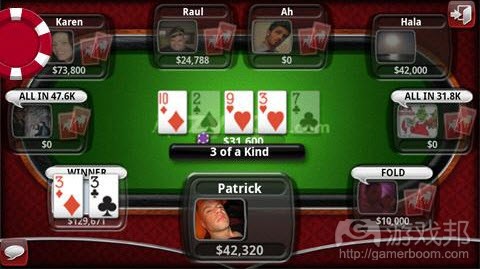
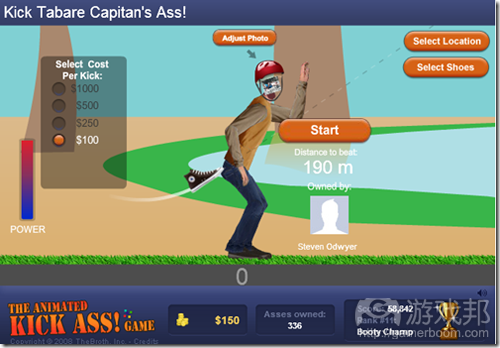















 闽公网安备35020302001549号
闽公网安备35020302001549号